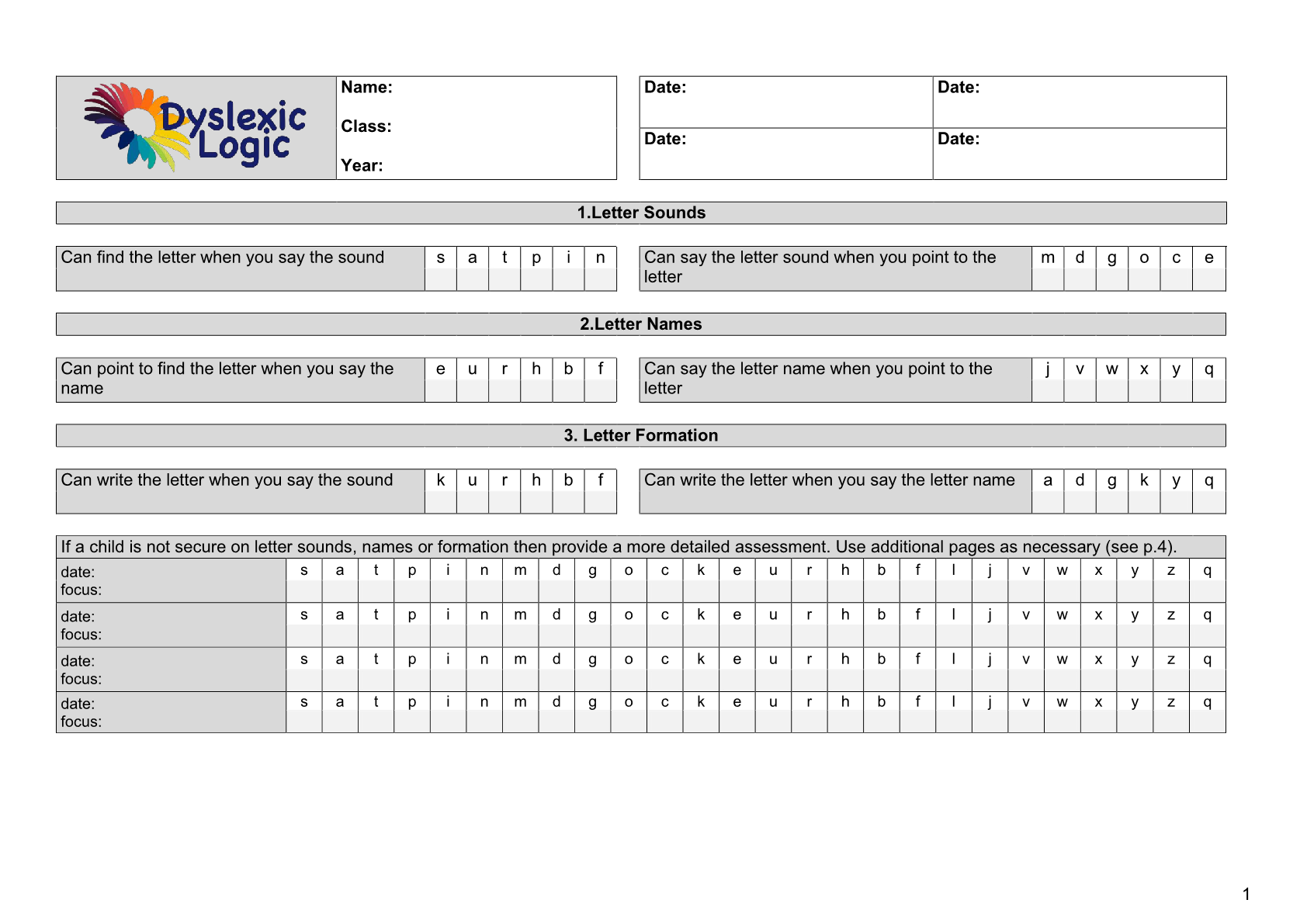Assessment and Tracking
The Dyslexic Logic Assessment and Tracking Pack was designed to be used alongside Dyslexic Logic support. It provides a baseline assessment and periodic tracking in one easy to administer bundle. It can be used across primary school and focuses on the core skills children need to develop to become proficient readers and writers.
The assessment covers eight core areas-
We usually add a reading benchmark and broken word (high frequency tricky) reading and spelling data to this assessment to give a complete overview of a child’s performance. This data is then used to finetune the individual literacy support programme tailored to that child.
Letter sounds, names and formation.
Oral blending and oral segmentation.
Recognising graphemes.
Spelling individual words.
Reading individual words.
Assessment 1 - Baseline and Tracker Assessment
Assessment Resources
Individual Assessment Record Sheet
Assessment Administration Instructions
Group Assessment Trackers are useful for comparing data for different children. This can be helpful for deciding how to group children, or see what specific input individual children need to focus on as their profiles shift over time.
.
.pub
Assessment 2 - Nonsense Word Focused Assessment
Children with dyslexia often have difficulty generalising spelling rules and applying them to new words they encounter while reading and writing. Children may either ‘rote learn’ whole words or have an insecure knowledge of the relationship between letters and sounds. This is sometimes called Phonological Dyslexia. Using nonsense words for assessment checks that the child fully understands the relationships between graphemes and phonemes in regular English. It can be particularly useful for children who rely on rote learning, often these children have little difficulty learning broken words (high-frequency tricky word spelling patterns) but struggle to read new and unfamiliar words.
Intervention Trackers
Intervention Trackers are designed to keep track of what has been covered by individual children during literacy intervention sessions. It is not intended that children will approach the programme in this specific order. The order will depend on the child’s pattern of strengths and weaknesses. However, it allows an ‘at a glance’ look at which concepts have been covered.
Note: This programme does not cover rare spelling patterns or rules that only apply to a handful of words. It is a programme designed for children who have difficulty with literacy and need support to become literate enough to read for pleasure and type with a spell check on as they progress through further eduction, not win a spelling bee.








